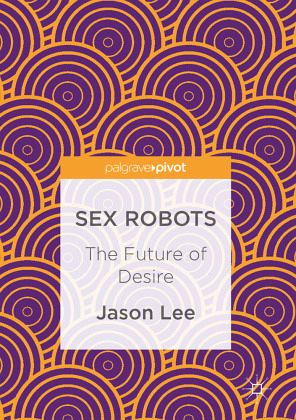
Sex Robots
The Future of Desire
Versandkostenfrei!
Versandfertig in 6-10 Tagen
42,99 €
inkl. MwSt.
Weitere Ausgaben:

PAYBACK Punkte
21 °P sammeln!
This book reveals that the way we perceive sex robots is how we perceive ourselves, overcoming the false human/non-human binary. From Greek myths, to the film Ex Machina, to Japanese technology, non-human sexuality has been at the heart of culture. In Sex Robots, the history of this culture is explored. This text sheds new light on what the sex robot represents and signifies, examining its philosophical implications within the context of today's society. This volume will be of interest to scholars of technology, cultural studies, the social sciences and philosophy.












